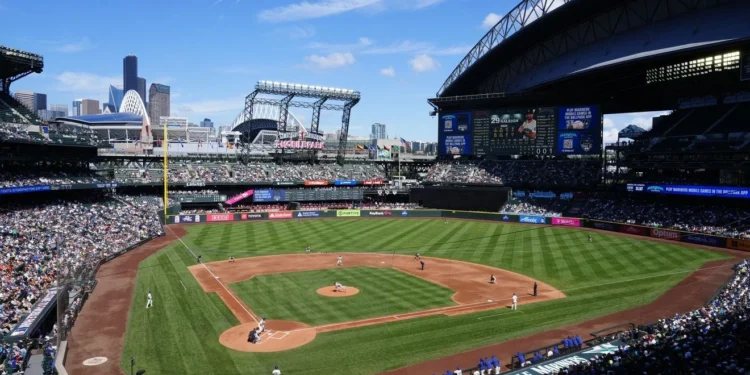The Seattle Mariners are surveying fans about noise levels from amplified street preachers who regularly position themselves outside T-Mobile Park during game days, addressing growing concerns about excessive volume affecting the ballpark experience.
The team’s “Amplified Noise Survey” seeks attendee feedback on how loud religious sermons impact their visits to the stadium. The initiative follows mounting complaints about preachers using amplification systems that significantly exceed Seattle’s noise ordinance limits.
Recent measurements presented during Seattle City Council public comment revealed preacher volume levels reaching 110 decibels, with peaks at 121.7 decibels as families waited in entry lines. These readings substantially exceed Seattle’s Noise Control Code, which caps commercial property noise at 60 decibels during daytime hours.
Seattle Municipal Code 25.08 specifically addresses “public disturbance noise” and restricts amplified sound beyond what’s necessary for intended audiences in public spaces. The regulations aim to balance free speech rights with community noise control.
Enforcement responsibility remains unclear across multiple agencies. Seattle Police Department officials stated that they don’t enforce specific noise limits, directing inquiries to the Washington Department of Ecology and King County Department of Public Health. SPD emphasized it cannot restrict free speech based solely on volume levels.
The Department of Ecology responded that local governments bear responsibility for setting and enforcing land-use noise limits. The Department of Health similarly stated it plays no role in noise ordinance enforcement, creating an enforcement gap that leaves the issue unresolved.
This jurisdictional confusion leaves fans and the Mariners organization without clear recourse for addressing excessive amplification that disrupts the pre-game experience for families and other attendees.
The Mariners have not disclosed how they plan to use survey results, stating only that collected information will “help inform their next steps.” The team faces the challenge of balancing respect for First Amendment rights while addressing fan concerns about noise pollution.
The situation highlights broader questions about regulating amplified speech in public spaces adjacent to private entertainment venues. Similar conflicts between religious expression and noise control occur at various sporting venues and public gatherings nationwide.
Street preaching outside sporting events represents a longstanding tradition, though the use of powerful amplification systems has intensified both the reach and controversy of these activities.
The survey results may influence future discussions between the Mariners, city officials, and law enforcement about managing noise levels while preserving constitutional speech protections in the stadium district.







